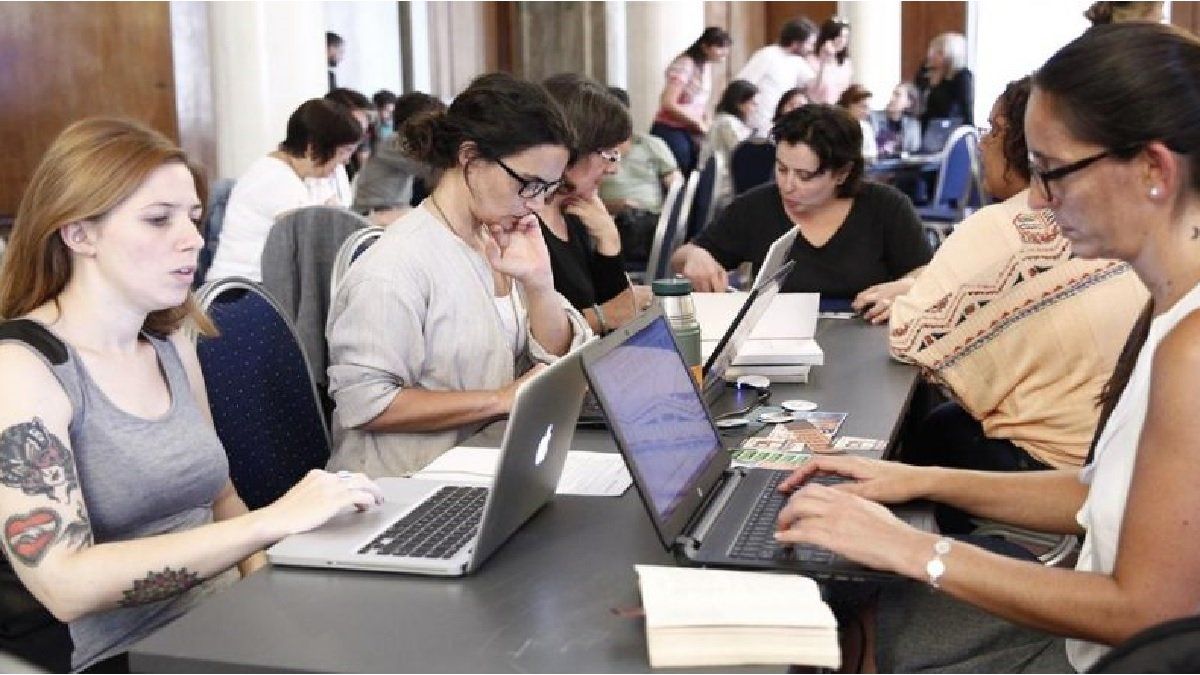Workspaces are in a transition process in which women play a fundamental role. He technological sector It is today a workplace of sustained growth in Latin Americawhere the participation of the women must be increasingly recognized.
In the year 2015, the Agenda for Sustainable Developmentset out seventeen objectives of Sustainable Development (SDG)among which are gender equality and the empowerment of women (SDG No. 5) as a fundamental pillar to reduce poverty worldwide by the year 2030. Although significant progress has been made in recent decades, according to him Global Gender Gap, there are still 132 years left to make the gender gap disappear in the world. There is still a long way to go, with the private sector playing an increasingly important role in supporting the achievement of the SDGs.
From my role in Lyraand in collaboration with FREIA – training space, carried out an analysis of the main obstacles observed in the world of technology to help reduce the gender gap.
According to estimates by the consulting firm McKinsey & Company, when women begin their managerial development, they face the phenomenon called broken rug (step broken), since, of every 100 men who are promoted to managerial positions, only 87 women are, and this number decreases when analyzing the historically disadvantaged groups of women. In other words, when it comes to appointing leadership positions, there are very few women who can take them within companies due to this divergence at the beginning of their management careers.
The study highlights that those women who manage to access leadership positions in the corporate world are willing to change jobs in search of spaces that give priority to flexibility, diversity, equity and inclusion, producing the highest rate of relegating women leaders to their companies and at a much higher rate than men who find themselves in the same conditions.
This point is not minor since it directly impacts young women and future leaders who are accessing the corporate and technological world and see Seniors as role models. Thus, the inclusion and development of young women in the private sector is a great kick to strengthen female confidence in worlds where gender equality is pursued. He Guidant Financial, in a survey of women entrepreneurs, confirmed that 57.9% of women are willing to be their own bosses. Additionally, approximately 22.4% of American entrepreneurs are women. In fact, the majority belong to Generation X: 68.9%. The baby boomers rank second, with 19.4%, and millennials third, with 10.7%. Therefore, given these low percentages, obviously the development of new jobs should aim to encourage the participation of young women.
On the other hand, Deloitte, in a recent survey, states that the majority of women are not satisfied with their work, especially those in non-managerial positions (59%) and middle managers (64%), with exhaustion (or “burnout”) being the main reason for wanting to change jobs. The main factor that produces this trend is, to a large extent, the accumulation of responsibilities related to care work that have a significant impact on their work routine. For this reason, participation in unpaid tasks at home is negatively correlated with labor participation and, consequently, causes women to delegate these possibilities to other people in the face of possible job growth incentives to avoid burnout.
The full economic autonomy of women is only possible with the accompaniment of all stakeholders of society, in which the private sector has a fundamental role. Therefore, Lyraas a fintech, seeks to accompany these unresolved social demands to reduce the gender gap and have more women leaders in the market.
To achieve this objective, there are measures that every company must take, such as training for leaders, labor flexibility and the promotion of women to management positions, the inclusion in the company of social benefits and professional development programs and mentoring, and the generation of data that includes data disaggregated according to sex and gender. These programs must have an intersectional approach, which makes it possible to understand the way in which inequalities and their intersectionalities come together in future leaders. Intersectionality in the workplace is vitally important to any inclusion program.
The 8M invites us to reflect on the claims, claims and pending debts to reduce the gender gap. From Lyrawe seek to rethink labor market policies with new data that allow us to contribute to greater gender equality and the development of new technologies so that in the future this date will also be a reason for celebration for the economic, physical and social autonomy achieved by women.
Source: Ambito
David William is a talented author who has made a name for himself in the world of writing. He is a professional author who writes on a wide range of topics, from general interest to opinion news. David is currently working as a writer at 24 hours worlds where he brings his unique perspective and in-depth research to his articles, making them both informative and engaging.




